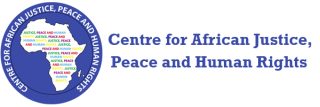International Law Blog
The International Law Blog stands as an inclusive platform, dedicated to delivering comprehensive updates on the ever-evolving landscape of International Law, encompassing progressive developments in International Criminal Law, International Human Rights Law, International Humanitarian Law and beyond.
Embracing the dynamic nature of International Law, it welcomes contributions from legal professionals and students alike at diverse stages of their careers, aiming at contributing to the discussion on the prosecution of gross violations of Human Rights in International Courts and Domestic Jurisdictions, within Africa and around the world extensively.
Please find our submission guidelines here.
Justice in Africa – Recent Developments From an International perspective
By: Dr. Sègnonna H. Adjolohoun
“Justice in Africa – Recent Developments From an International Perspective” examines the challenges and progress of justice systems in Africa, focusing on colonial legacies, judicial independence, alternatives to international justice, human rights enforcement, judicial conflicts, and emerging transnational crimes.
Article ‘Justice in Africa – Recent Developments From an International Perspective’
Forced Marriage as a Crime Against Humanity under other Inhumane Acts in International Law
By: Aban Ador
Forced marriage, often overlooked, breaches international human rights law by replacing consent with coercion. This article examines its classification as a crime against humanity, particularly under the category of “other inhumane acts,” through pivotal cases and evolving jurisprudence.
Safeguarding Freedom of Expression: Upholding
Fundamental Human Rights in Zimbabwe
By: Rumbidzai Mudzongo
Freedom of expression in Zimbabwe remains under threat despite constitutional protections. This article explores ongoing restrictions under current leadership, highlighting their impact on media independence, human rights, and the 2023 general elections.
Article ”Safeguarding Freedom of Expression: Upholding Fundamental Human Rights in Zimbabwe” (2022)
Deceased Accused: The Practice of International Tribunals vs the Pursuit of Justice
By: Vetira Rukoro
This article will first further contextualize the practice of international tribunals as it concerns accused persons dying before a judgment is made. It will then discuss this practice about the overarching pursuit of justice.
Interrogating the socio-legal concept on domestic violence against men in Nigeria: The need for progressive approaches
By Godfree Matthew Esq. African societies are generally considered as patriarchal in nature. This presupposes that men usually exercise dominance over women in such societies. In Nigeria, male dominance is adjudged to be a normal way of life that accords with African value-systems. This perception is further accentuated by the
Health Services and Education: Impact of unaddressed inequalities on people living in rural communities
By Kean Smith The theme of World Health Day 2021 is “[b]uilding a fairer and healthier world”. This theme encompasses Goals 3 and 10 of the United Nations Sustainable Development Goals (UN SDGs). The United Nations Sustainable Development Goal 3 is to ensure healthy lives and promote well-being for
Tek-Gungu: Male Survivors of Wartime Sexual Violence – Perspectives from Northern Uganda | Philipp Schulz
Book Comment By Leonie Fach & Tamia Brito On 25th February 2021, Philipp Schulz presented his book “Male Survivors of Wartime Sexual Violence – Perspectives from Northern Uganda” (2020) at an event organised by the Gender Centre of The Graduate Institute. Through this publication, Schulz disseminates the seldom-heard marginalised
Water and Education Amid the Coronavirus Pandemic – The Gender Left Behind
By Cynthia Atuchukwu Water & Uganda Water is Life. It is an essential natural resource, yet about 2.2 billion people lack access to safe drinking water (see Appendix I), and 785 million people living in rural areas lack access to it.[i] The Republic of Uganda is a landlocked country
WASH, Climate Change and Education: A Closer Look
By Melissa Philippou Today, billions of people around the world do not have access to clean water and sanitation services.[i]According to the United Nations (UN), one in three people globally do not have access to safe drinking water, while two out of five people do not have a basic hand-washing
Sexual Violence issues in the Kivu Province – Democratic Republic of Congo
By Lejla Bešić This article will present the ongoing issue of sexual violence against men during conflict in the Democratic Republic of Congo (DRC). It will explain brief historical facts followed by the sexual violence issues men and boys encounter, including statistics and how the issues are being tackled. To
